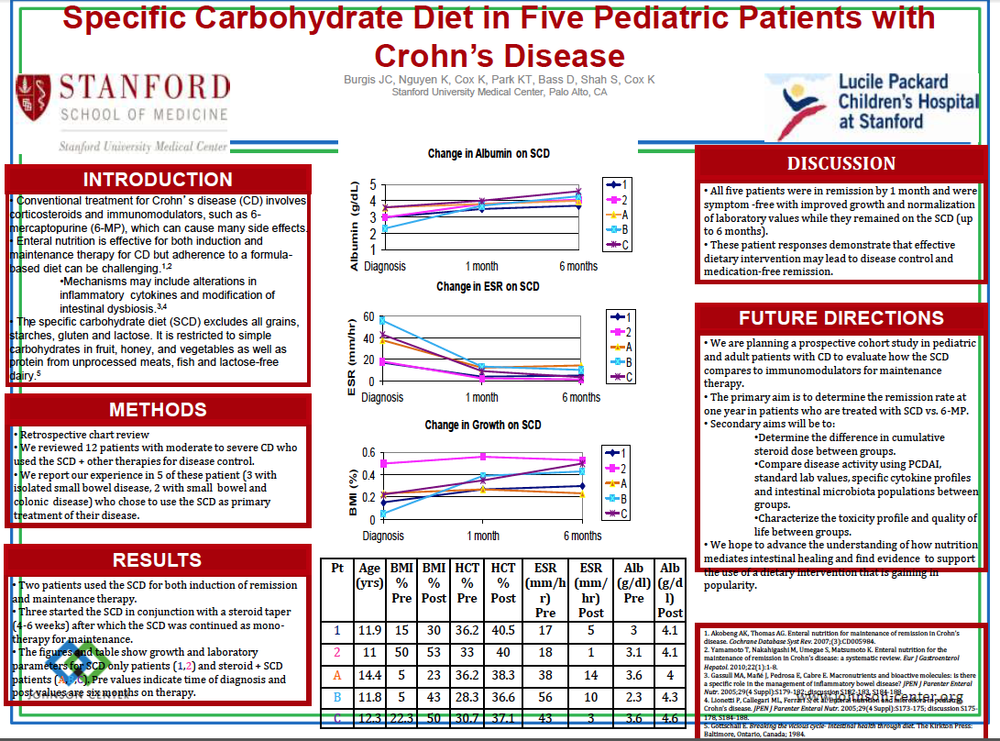
While working on the SCD for Autism and ADHD book, we read through literally hundreds of studies. However, it left little time to write posts about IBD studies.
Last year, it became "official", a Harvard-led study of 447 children* newly diagnosed with Crohn's disease found a striking imbalance of gut bacteria, with pathogenic bacteria flourishing. (*Places like Harvard often seem to be the most "conservative" to weigh in on "new" ideas.)
Over the last 2-1/2 years there have been several small SCD posters as well as published studies from California, Chicago, and Georgia about different aspects of the SCD.
Starting with a Stanford School of Medicine Poster presented in Chicago in 2013, here is a quick recap.
Title: Specific Carbohydrate Diet in Five Pediatric Patients with Crohn’s Disease
Patient Description:
- 5 patients, between ages 11 and 14-1/2
- Patients diagnosed with severe to moderate Crohn's disease
- They chose SCD as a primary treatment for their disease.
How the SCD was Used:
- 3 patients started the SCD while tapering off of steroids. After 4-6 weeks, the SCD was used for maintenance, without steroids
- 2 patients used the SCD for both going into remission** as well as maintenance.
(**Note: Definitely coordinate with your doctor if trying the SCD. Crohn's and ulcerative colitis usually need medication for remission.)
Results:
- All five patients were in remission by 1 month and were symptom-free with improved growth and normalization of laboratory values while they remained on the SCD (up to 6 months).
- The patient responses demonstrate that effective dietary intervention may lead to disease control and medication-free remission.
This experience closely mirrors that of patients at Seattle Children's Hospital.
Reference: Burgis J, Nguyen K, Park K, Cox K. Specific Carbohydrate Diet in Five Pediatric Patients with Crohn’s Disease. NASPGHAN, October 2013. Chicago, IL (Poster)


